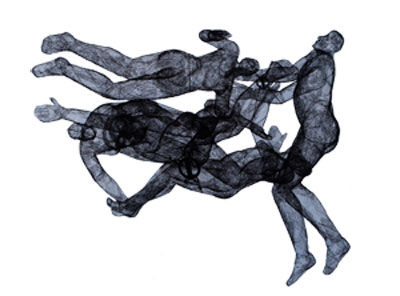Observation
Insight on Out-of-Body Experiences
 When you hear “out-of-body experience,” you probably think of hallucinations caused by drugs or a mental instability, but a new study published in Elsevier’s Cortex suggests that out-of-body experiences (OBEs) occur in nonclinical populations as well. Jason Braithwaite of the University of Birmingham has been studying OBEs in healthy individuals by looking at the underlying factors that predispose these individuals to have OBEs. Braithwaite and colleagues found that OBEs can and do occur in healthy and psychologically normal people. These hallucination-like experiences reflect anomalies in the neuroelectrical activity of the temporal lobes and biases, if not distorts, how the brain processes and represents the body’s sense of itself. This groundbreaking research begins to shed light on the poorly understood phenomena of out-of-body experiences.
When you hear “out-of-body experience,” you probably think of hallucinations caused by drugs or a mental instability, but a new study published in Elsevier’s Cortex suggests that out-of-body experiences (OBEs) occur in nonclinical populations as well. Jason Braithwaite of the University of Birmingham has been studying OBEs in healthy individuals by looking at the underlying factors that predispose these individuals to have OBEs. Braithwaite and colleagues found that OBEs can and do occur in healthy and psychologically normal people. These hallucination-like experiences reflect anomalies in the neuroelectrical activity of the temporal lobes and biases, if not distorts, how the brain processes and represents the body’s sense of itself. This groundbreaking research begins to shed light on the poorly understood phenomena of out-of-body experiences.





APS regularly opens certain online articles for discussion on our website. Effective February 2021, you must be a logged-in APS member to post comments. By posting a comment, you agree to our Community Guidelines and the display of your profile information, including your name and affiliation. Any opinions, findings, conclusions, or recommendations present in article comments are those of the writers and do not necessarily reflect the views of APS or the article’s author. For more information, please see our Community Guidelines.
Please login with your APS account to comment.